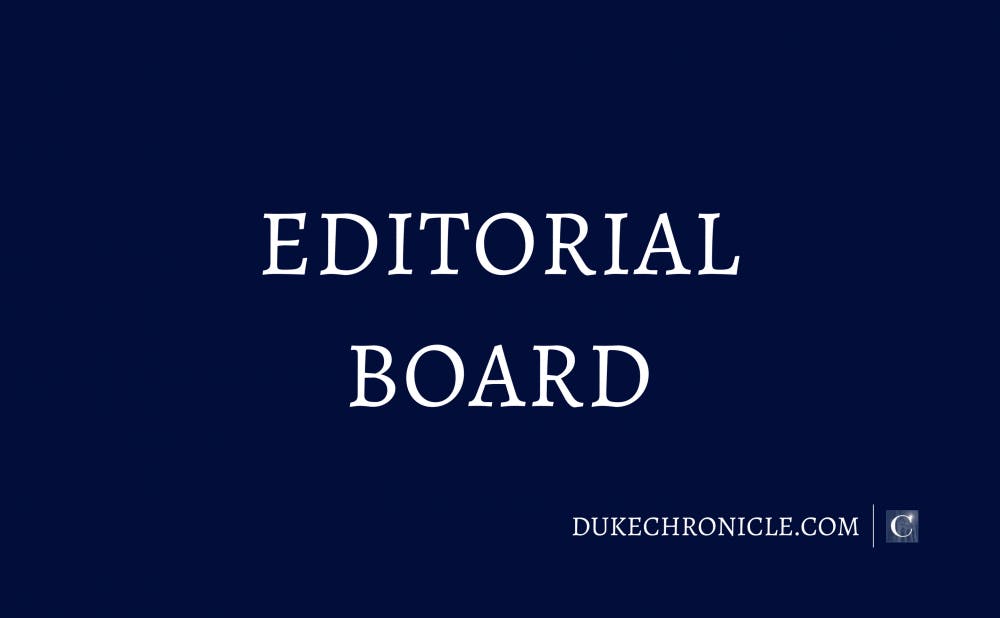Institutional racism at Duke has once again made national headlines this weekend, courtesy of a strongly-worded email sent by an administrator to her graduate students. In a mass email sent to all first-year and second-year students enrolled in the Master of Biostatistics program, the director of graduate studies, Megan Neely, warned her students against conversing in Mandarin while on campus. In an earlier email from Neely, she expressed similar sentiments, castigating Chinese international students for speaking in Mandarin while carrying on private conversations. It seems that for Neely and certain members of the biostatistics department, the sound of Mandarin being spoken at an international research university was too much for their monolingual white ears to handle. The consequences they laid out for students who dared to violate their linguistic mandate were, unsurprisingly, draconian: refrain from speaking Mandarin in front of professors, or risk losing work and research opportunities. [Editor's note: Mandarin is the most likely language to have been spoken by the students; Neely's email only said they students were speaking "Chinese" and did not specify.]
The backlash was almost immediate. Within minutes, screenshots of the most recent email appeared on the popular Facebook page, "Duke Memes for Gothicc Teens," and went up on the more general "All Duke" page as well. As this story has developed over the weekend, its audience has grown to be an international topic of discussion. On Subtle Asian Traits—the Facebook group dedicated to the various aspects of the Asian/Asian-American experience—the post detailing the incident garnered over 9,000 likes and 2,000 comments. Neely has since stepped down from her role as the Director of Graduate Studies, but as of the time of publication, remains an assistant professor at the university. The two faculty members who, according to her email, sought her out to single out specific students remain unnamed. The Office of Institutional Equity has been asked to investigate the issue, but the implications of the incident merit further discussion.
Not only were the two emails blatantly xenophobic, but the fact that the chair of the department, the director of graduate studies and at least two faculty members actively agreed on such sentiments indicates that this is a deeply systemic issue—one that leads to concrete racial discrimination in the form of denied jobs, research positions and internships. The question arises: why the Chinese students, specifically? If they were French or German and speaking in their native languages, would the two faculty members have approached Neely and requested their names and faces? We see this contradiction play out all around us. Certain languages deemed too far outside the white mainstream—like Spanish, Chinese, and Arabic—incur more scrutiny and suspicion than others, and their speakers face more persecution. This form of racism affects more than just international Chinese students: multiple ethnic groups share solidarity in the fight for linguistic and, by extension, cultural autonomy.
Of course, Duke outwardly values diversity in language, culture, and experiences. We brand ourselves as an international research university, and with our new campus at Kunshan, this marketing has only gotten stronger. When the new class of Kunshan students arrives in Durham to study at Duke's U.S. campus, they will quickly realize that all the talk of inclusivity hides the true mission of both campuses: cultural imperialism. Duke has a long history with this; in the mid-1880s, Duke accepted 20 Cherokee boys—all below college age—into the university with the express mission of 're-education' and assimilation into American culture. To be an international student at Duke, assimilation continues to be a prerequisite for success: learn English, learn to drive, accustom oneself to fatty Western foods, learn Western social norms and etiquette. Ultimately, assimilation results in the absorption and performance of “whiteness,” a combination of which is required in most professional and academic circles worldwide. Neely claims that speaking Mandarin within earshot of potential employers will hurt students' professional chances, and she's right, she is speaking to this nationwide process of quashing languages and other aspects of culture outside of the white norm.
For students of color at Duke who enjoy conversing in Mandarin, Korean, Arabic, Spanish, Hindi, etc. with friends and family outside an academic setting, this incident is, needless to say, tremendously disheartening. For parents and family members of students who come to campus this May to celebrate the graduation of the current senior class, be forewarned. Lest you ruin the value of your child’s Duke degree, please refrain from speaking to students in any other language but English while on campus; faculty members will be keeping note during the ceremonies and reporting them to future employers.
This was written by The Chronicle's Editorial Board, which is made up of student members from across the University and is independent of the editorial staff.
Get The Chronicle straight to your inbox
Sign up for our weekly newsletter. Cancel at any time.

